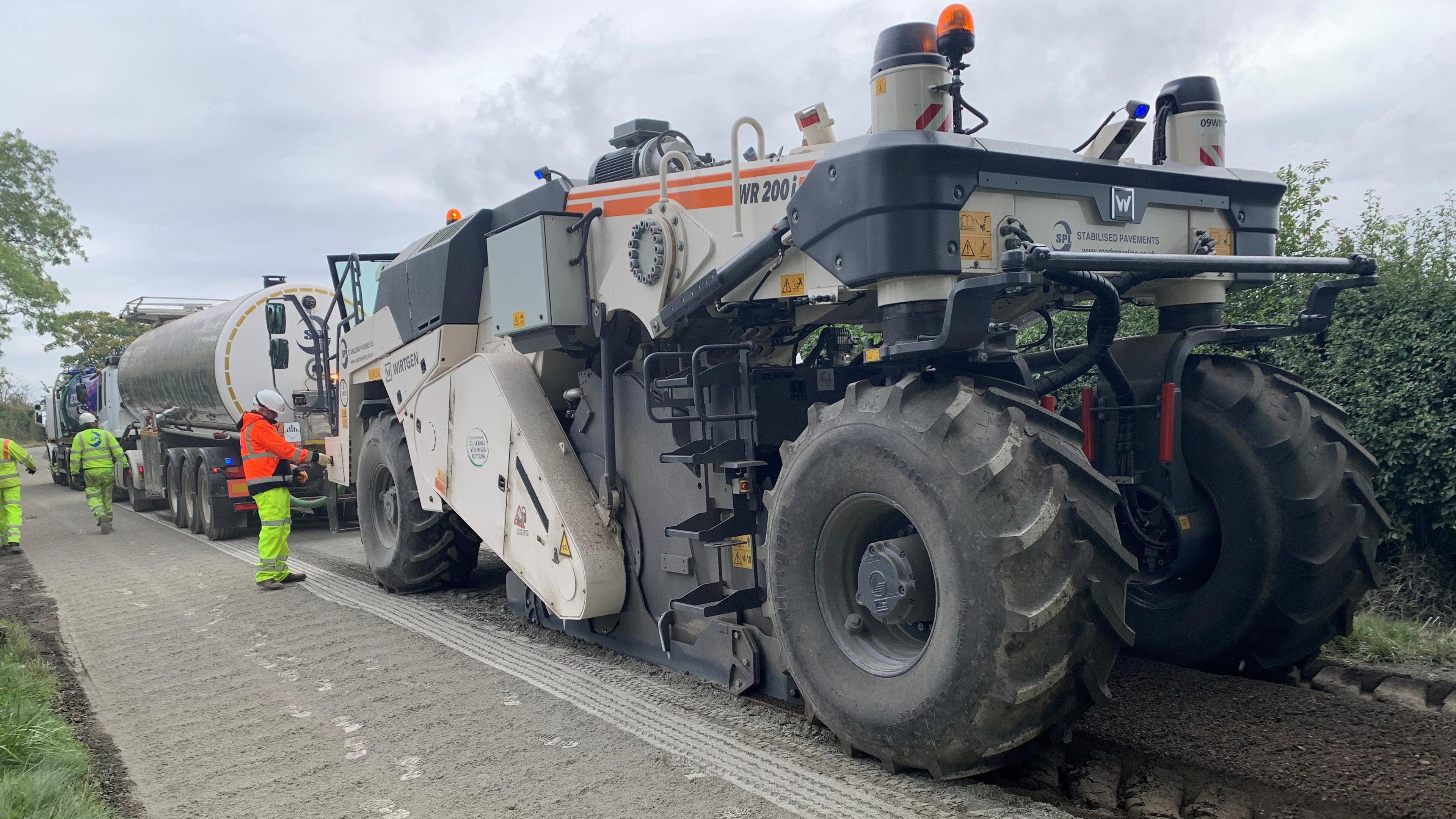Roadworks pioneer innovative recycling technique

The new road surface is expected to last for at least 20 years, with routine maintenance
- Published
A road has being resurfaced by reusing existing materials in a process that has saved hundreds of tonnes of carbon.
Oxfordshire County Council carried out the £740,000 scheme on a road north of Berrick Salome, near Wallingford, in south Oxfordshire.
It also allowed the road to be reopened eight days quicker compared to conventional resurfacing techniques.
Councillor Andrew Gant said it could "help ease the burden on highways budgets".
The applied technique, known as in-situ cold recycling, is estimated to reduce carbon by about 71% compared to conventional surfacing of the same depth.
It involves pulverising the existing carriageway and then mixing it with a formula that allows the treatment and processing of cold or damp construction materials and cement powder to create a new 300mm-deep (11.8 inches) strengthened carriageway.
The material is then compacted to return the recycled layer back to the required road level.
Andrew Gant, councillor for highways at Oxfordshire County Council, said they were "delighted" to deliver a scheme to "make our residents’ money go further and reduce disruption".
It is the latest in a series of trials on the county’s roads, including the longer lasting Graphene Plus-enhanced asphalt Gipave in Middle Barton and testing different pothole repair methods in Steventon.
The new road surface is expected to last for at least 20 years, with routine maintenance.
Follow BBC South on Facebook, external, Twitter, external, or Instagram, external. Send your story ideas to south.newsonline@bbc.co.uk.
Related internet links